
Fast, affordable Internet access for all.

Ottawa County, Michigan officials say they’ve struck a new public private partnership (PPP) with 123Net on a $25 million fiber deployment that aims to bring more uniform – and affordable – broadband access to Michigan’s seventh largest county by population.
The Ottawa County Board of Commissioners voted last month to approve a master agreement and letter of intent with 123Net.
The finalized agreement calls for 123Net to spend two years deploying 400 miles of new fiber infrastructure as part of an open access, carrier neutral fiber network to bring new competition – and affordable fiber – to 10,000 county residents and businesses.
The $25 million network will be funded by $14 million from Michigan’s Realizing Opportunity with Broadband Infrastructure Networks (ROBIN) grant program; $7.5 million from Ottawa County’s American Rescue Plan Act funds, and $3.5 million in private funding from 123NET.
“We’re at an interesting time in broadband deployment as there are a number of unique funding programs that counties and municipalities can access,” said Chuck Irvin, Executive Vice President of 123NET, said in a statement. “123NET is proud to be part of this exciting project.”
At the same time, county officials say they’ve struck a separate deal with Tilson Technology to build new wireless towers to deliver fixed wireless service to an undetermined number of rural county residents for whom deploying fiber is cost prohibitive.
Eagle, Idaho is preparing to connect the first of the city’s 32,000 residents to a new, municipally-owned open access fiber network. The project, which the city says will take between five to 10 years to complete, is being heavily funded by federal grants, and aims to meaningfully boost broadband competition – and affordable access – citywide.
ISLR profiled Eagle’s efforts last year, noting that the $5 million initial downtown fiber loop was jump-started with the help of the city’s $6.7 million allotment of American Rescue Plan Act (ARPA) funding.
Roughly 300 homes and 30 businesses should be able to connect to the network within the next six months, the city now says. More than 30 residential subdivisions are in the early deployment phase, and the project will expand steadily over the next decade, funded by revenues from existing subscribers and future state and federal grant opportunities.
Like countless American communities, Eagle suffers from a notable lack of competition between regional phone giant Lumen (formerly Centurylink, now operating under the Quantum brand), and regional cable company CableOne (under the Sparklight brand). That muted competition results in high prices, spotty access, slow speeds, and substandard customer service.
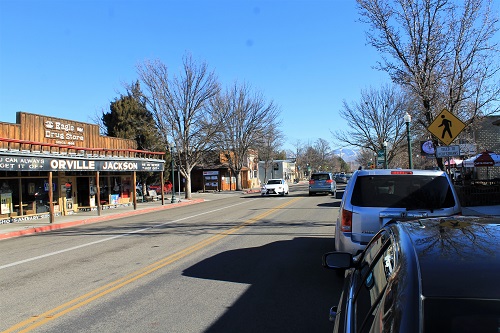
Enter Eagle’s open access fiber network, which will allow numerous ISPs to compete in layers, driving down market entry costs for providers and broadband access prices for consumers. City leaders say the aim is to offer symmetrical gig speed service for between $50 and $60 to residents, and $150 per month to local businesses.
Colorado has long been home to some of the most innovative municipal broadband projects in the country. That trend has only accelerated with last year’s voter-approved elimination of municipal broadband restrictions, and it’s now being buoyed by a massive new wave of state grants that should further expand affordable broadband to long-neglected parts of the state.
Colorado Gov. Jared Polis recently announced the first of multiple broadband investments using stimulus funding from the U.S. Treasury’s Capital Projects Fund (CPF) program. The CPF is funded by $10 billion made possible by the American Rescue Plan Act (ARPA), and is a key part of the state’s goal to bring affordable broadband to 99 percent of Colorado residents by 2027.
According to the Governor’s office, the state just authorized $113 million in CPF funds on 13 projects that will bring fiber service to nearly 19,000 homes and businesses across Colorado. State officials say the funding will be heavily focused on projects in the South and Southwest portion of the Centennial State, where connectivity needs are greatest.
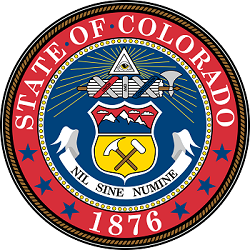
The Colorado Broadband Office says it received 112 applications asking for more than $642 million in broadband funding across the state–five times greater than the allotted awards.
Municipal finance is not for the weary.
But for the wise – at least according to the number-crunchers enmeshed in that world – one particular sliver of municipal finance (issuing bonds) has long been a viable way for local communities to finance the construction of municipal broadband networks. And as one Communication Union District in Vermont has discovered, bonding is better – when it’s rated.
Shining a light on bond-backed municipal broadband projects is the recent announcement that ECFiber, Vermont's first Communications Union District (CUD), obtained a BB rating from Standard & Poor Global, the nation’s preeminent credit rating agency. The rating will allow ECFiber to pay lower borrowing costs to complete a network expansion project.

“This is a historic moment,” Stan Williams, ECFiber’s municipal finance advisor said in a prepared statement. “For the first time, a CUD will be issuing a rated bond, which means that many more investors will be competing to buy those bonds, lowering the interest rate. ECFiber has been managed for its entire existence to reach this goal. It’s hard to overstate the importance of this achievement.”
East Central Vermont Telecommunications District governing board chairman F. X. Flinn added that the new bond rating "was made possible by over 16 years of grass-roots persistence, driven by a conviction that working together, our region could overcome the failure of the marketplace to offer decent broadband to all our homes and businesses."
NEK Broadband continues to bring affordable fiber access to the long-neglected corners of the Green Mountain State. According to the latest update by NEK Broadband, a recently completed rollout has delivered affordable fiber access to 700 new addresses across multiple rural Vermont communities.
NEK Broadband is one of nine Communications Union Districts (CUDs) scattered across the state of Vermont. NEK Broadband alone represents 45 Vermont communities across Caledonia, Essex, Orleans and Lamoille Counties in the northeast part of the state (see the full list of communities here).
The CUD’s latest expansion plan primarily focused on bringing fiber access to parts of Danville, Kirby, Lyndon, St. Johnsbury, Walden and Wheelock, Vermont. With this latest expansion, NEK Broadband now provides fiber access to 2,100 predominantly rural Vermont residents in total, many of which only received broadband for the first time last year.
“We’re so pleased to end 2023 by giving more residents of the NEK access to high-speed internet,” Christa Shute, NEK Broadband’s Executive Director, said in a prepared statement. “We plan to bring even more residents online in early 2024.”
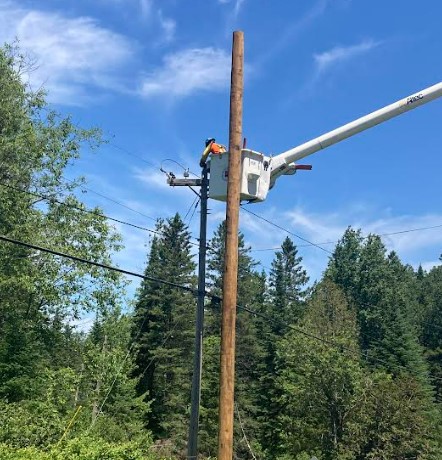
The CUD currently provides upgraded users with access to speeds that exceed those provided by cable and DSL providers, even in many more urban markets.
NEK Broadband currently offers four tiers of broadband service: symmetrical 50 megabit per second (Mbps) service for $80 a month; symmetrical 250 Mbps service for $103 a month; symmetrical 500 Mbps service for $135 a month; and a symmetrical gigabit per second (Gbps) offering for $250 a month.
Windstream Communications and local nonprofit electrical cooperative Colquitt Electric Membership Corp are partnering on a $32.5 million fiber deployment that will bring fiber optic broadband to 17,000 homes and businesses in Colquitt County, Georgia.
Once completed sometime next year, the partnership should help deliver last-mile fiber access to roughly 70% of Colquitt County residents, many of which either have no current broadband access, or have long been stuck on sluggish, expensive, and dated digital subscriber line (DSL).
Windstream will maintain ownership of the finished network and provide residential service under its Kinetic brand, while Colquitt EMC will utilize the network to help maintain and support the company’s existing electrical grid.
Kinetic will use $21.4 million in American Rescue Plan Act (ARPA) grants to fund the network build, while providing $11.1 million of its own funds to cover any cost overruns. The company says it has already laid 180 miles of cable of an expected 440 miles total county wide.
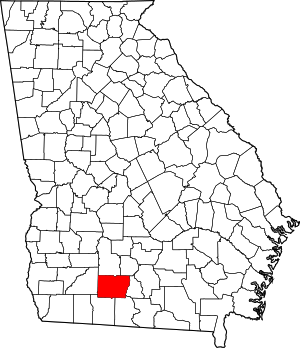
“Colquitt EMC has been an instrumental part in the delivery of fiber in its service area,” Kinetic Georgia operations President Michael Foor said in a prepared statement. “We are grateful for its willingness to support these efforts.”
As ILSR has long noted, PPPs can be a decidedly mixed bag. They can be good for municipalities unable or unwilling to handle the logistics or cost of a major deployment alone. At the same time, locals don’t have much or any control over the trajectory of the finished network, including pricing that can quickly creep out of the range of affordability.
In the wake of the new rules issued by the Federal Communications Commission (FCC) to prevent digital discrimination, digital equity advocates from California to Cleveland are leveraging the new federal rules to spur local action.
In Los Angeles, city leaders have passed an ordinance to combat what advocates say are discriminatory investment and business practices that leave historically marginalized communities without access to affordable high-quality Internet. Similar efforts to mobilize communities and local officials are underway in Oakland and Cleveland.
In November 2023, the FCC codified rules to prevent digital discrimination, outlining a complaint process whereby members of the public can offer evidence of digital discrimination being committed by Internet service providers (ISPs). Though the FCC order does not outline local policy solutions, nor does it empower localities to carry out enforcement of the federal rules, it has the potential to open up conversations between local advocates and elected officials about new ordinances, stronger enforcement of existing ones, or public investment to facilitate competition and the building of better broadband networks.
Los Angeles First City in Nation To Officially Define Digital Discrimination At Local Level
The local organizing work behind the proposed ordinance in LA dates back to 2022 when digital equity advocates began to document inequitable broadband access across the county.
Yesterday, New York Gov. Kathy Hochul announced a $228 million infusion of federal funds the Empire State will earmark for its recently established Municipal Infrastructure Program (MIP).
Created as part of New York’s billion dollar ConnectALL Initiative, the MIP is specifically designed to support municipal broadband projects, which have shown to be a viable, and increasingly popular, way to bring affordable, high-quality Internet service to an entire community.
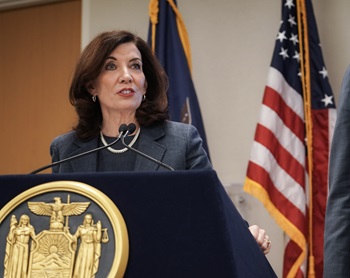
New York is a notable exception to what most other states are doing as those states prepare to funnel the lion’s share of its federal broadband funds to the big incumbent providers with scant, if any, support for publicly-owned broadband projects. In New York – similar to states like Maine, Vermont, and California – state leaders are devoting a significant chunk of federal funds, all $228 million of its recent disbursement of Capital Projects Funds, to build publicly-owned, open access networks.
“Broadband infrastructure in the Municipal Infrastructure Program will be owned by a public entity or publicly controlled, and Internet Service Providers will use the new broadband infrastructure to provide New Yorkers with affordable, high quality service options,” the press announcement said.
Waterloo, Iowa’s municipal broadband project has taken a major step forward after nearly two decades of planning.
Waterloo Fiber officials just launched their first limited fiber trial, will connect their first commercial customers in February, and are on target to deploy affordable fiber at speeds up to 10 gigabit per second (Gbps) to every last city resident by 2026.
When we last checked in with Waterloo in February of last year, the city was putting the finishing touches on a plan to spend $115 million to build a fiber backbone accessible to all 67,695 Waterloo residents, after locals approved the city issuing general obligation bonds to fund the start of the three-phase construction project.
Construction of the network began last summer at a groundbreaking ceremony hosted by Waterloo Mayor Quentin Hart.
“It will be the lifeline that connects our entire community, enabling businesses to thrive, students to excel and families to stay connected," Hart told attendees. "This fiber system will lay the foundation for a smart city innovation, economic growth and an enhanced quality of life for all our residents."
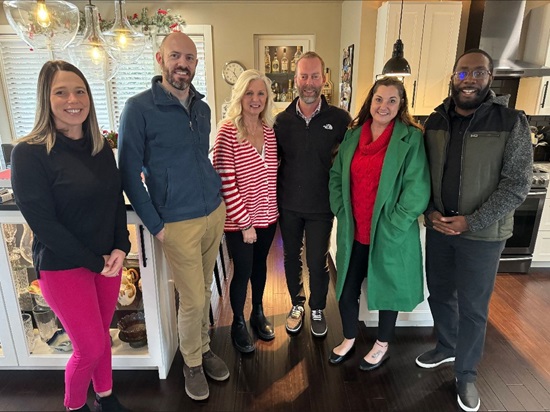
Last month the city connected the first of four participants in a limited pilot project.
The Idaho Broadband Advisory Board (BAB) has greenlit $120 million in broadband grants from the Idaho Capital Projects Fund (CPF) to fund 18 different broadband projects across Idaho, delivering affordable fiber access to 30,000 homes and businesses, many for the first time.
It’s the latest round of funding made possible by the American Rescue Plan Act, passed in 2021 to help soften the impact of COVID. A breakdown of the finalized awards indicate 18 different providers received funding from BAB, including a $9.8 million award to Comcast and more than $11 million to Ziply Fiber.
“These awarded projects are another important step in furthering the Idaho Broadband Advisory Board’s mission of ensuring that all Idahoans have access to affordable and reliable internet,” Idaho Broadband Advisory Board Chair, Representative John Vander Woude said in a prepared statement. “These projects will connect homes and businesses across the entire State.”
Seven of the award recipients were individual counties pursuing varying options to shore up access to largely rural unserved and underserved residents.